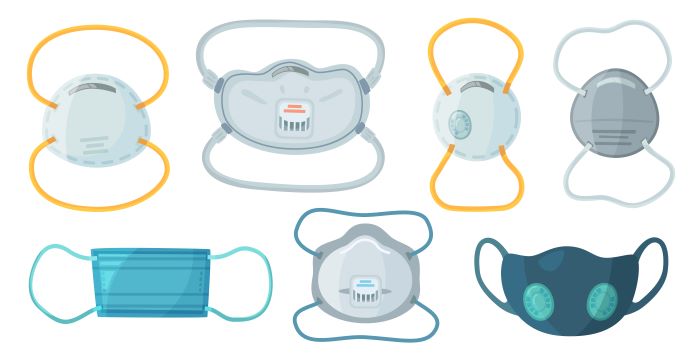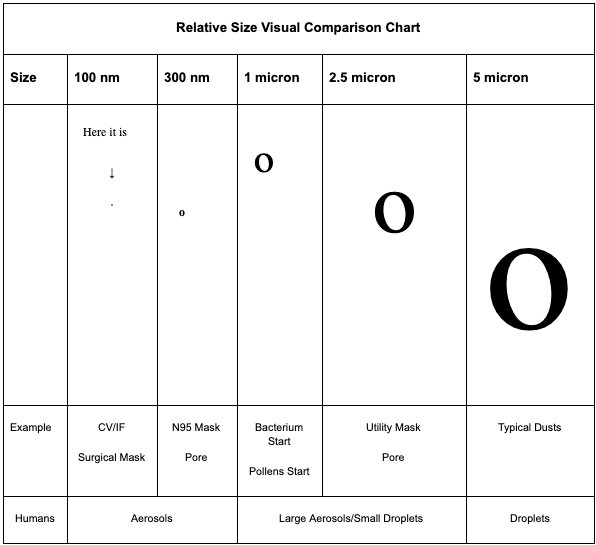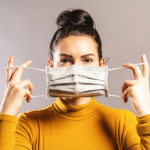All Not Created Equal
By Karen L.
The following illustration from Dr. Koops article shows the difference in size of various particles. Particle sizes are shown as larger in this illustration for comparison purposes; in which none of these particles are actually visible to the naked eye.
Respirators, masks and face coverings are not created equal.
Respirators are designed to create a seal around the face to prevent particles from passing around the filter area. Numbers assigned to various respirators (e.g., N99) refer to the percentage of airborne particles the mask is designed to filters out. The higher the number, the less airflow, and the harder to breathe through. Some respirators are unidirectional, i.e., incoming air and outgoing air move via different pathways, with valves preventing air flow in the opposite direction. Some are bidirectional, i.e., air goes in and out through the same place. Respirators are used to protect the wearer and are only useful in controlled clinical settings. Respirators are generally filters, not barriers.
Masks (surgical or N95) masks, limited to medical personnel, should be dispensed by trained personnel. The protection is mainly to prevent transmission of bacteria and fungi to patients, since per the CDC, surgical masks do not effectively filter virus particles. This is why surgeons who have viruses do not do surgery. When used incorrectly, masks elevate transmission risk. These single-use masks do not filter out infectious viral particles and are NOT designed for extended wear. Masks are filters, not barriers.
Face coverings include all other types of “masks” used to cover mouth and nose, e.g., dust masks, utility masks, homemade or purchased cloth masks. Face coverings are not sealed around the edges. And the pores are many, many times larger than virus molecules. They are poor filters and are not barriers.








